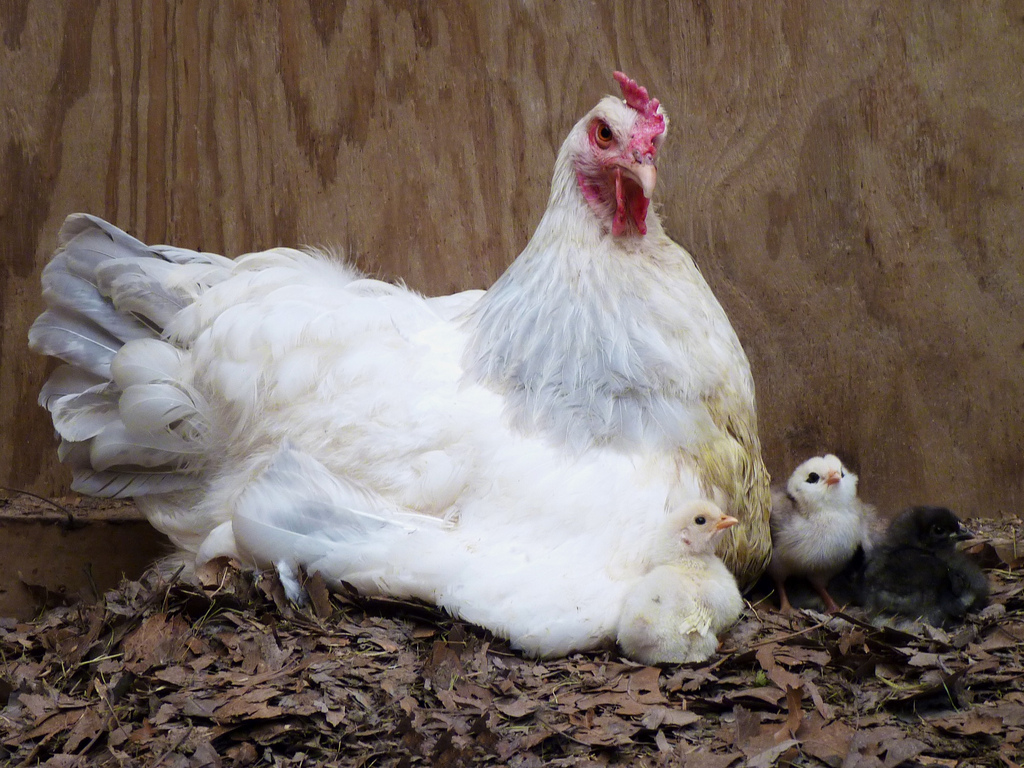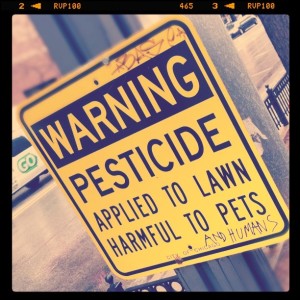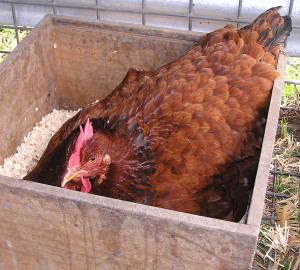UCP Episode 060: Listener Q & A Session #6
Description
On this episode of the Urban Chicken Podcast, I answer a new set of listener questions on a variety of topics. How long after your husband treats your lawn with a chemical weed and feed can you safely put a flock of birds on it? What do you do when you have multiple hens go broody at the same time? How do you protect your flock from predators?
There is tons to learn in this episode – including a brief look at a news story involving chickens which sounds more like an Austin Power’s movie plot.
ISIS STUDYING AUSTIN POWERS’ MOVIES
Just when I thought the world could not possibly get more ridiculous, I am proved wrong. In a recent news story out of the U.K., I discovered that Isis (a violent, extremist Islamic group based in Iraq and Syria) is apparently basing their military strategy after Dr. Evil lately.
In a move that is about as reasonable as sharks outfitted with laser guns, Isis militants are now strapping C4 plastic explosives onto the backs of innocent chickens. These poor unwitting birds are then set loose to wander into the camps of Isis enemies. Once inside, Isis militants remotely detonate the explosives strapped to the chickens – killing both the bird and humans. Everything about the Middle East disheartens me – including the chicken suicide bombers.
CHEMICAL WEED N’ FEED AND YOUR FLOCK
What can you do when your husband is obsessed about his lawn as an Augusta golf course groundskeeper?
UCP listener Susan recently wrote and told me that her husband has regularly been using Scott’s Weed n’ Feed granules on their yard lawns and his last application had been two weeks earlier. Susan now has some young pullets and wants to be able to put her new hens out in the yard, but is concerned about their safety. The safety label for the toxic product that her husband was using clearly states,”this product is not intended for use where grazing animals such as chickens are.”
Susan wanted to know the answer to two questions. First, when if ever, will it be safe for her new flock to scratch and peck around her family’s backyard lawn? And how can she appease her husband’s lawn obsession in a manner that is effective (i.e. the lawn lives up to HOA standards), but is not completely toxic to her hens?
After some researching on-line, my long time suspicions were confirmed – not only are chemical herbicides no bueno for grazing animals such as chickens, but they are also dangerous to humans in general. My research however, did not however answer Susan’s question though – when could her birds safely be let loose on this chemical herbicide treated lawn. I decided the best answer would be to go to the source, so I contacted the Scott’s company directly. Here is a link to an unabridged transcript of my on-line customer service chat with a Scott’s representative about their product – Chat Transcript.
In a nutshell, Scott’s does not know when it is safe for chickens to be let loose to graze on lawn after being treated with their product. The only thing that Scott’s customer service representative could say was that the Environmental Protection Agency (EPA) suggests that a full year pass before allowing grazing animals on previously treated grasses with Scott’s products. When I asked about other options, the Scott’s representative suggested that the lawn and all of the top soil down to the moisture line, which you find using a hydrometer gadget (here is one example: Dr.Meter® Moisture Sensor Meter, Soil Water Monitor, Hydrometer for Gardening, Farming, Indoor/Outdoor Use (4-in-1 Advanced Version)" target="_blank">Dr.Meter® Moisture Sensor Meter, Soil Water Monitor, Hydrometer for Gardening, Farming, Indoor/Outdoor Use (4-in-1 Advanced Version) and replace all of that topsoil with untainted dirt. Hmmm…that seems an impractical and overly burdensome solution!
A beautiful lawn does not require chemical treatments, which simply poison your ground and kill all the beneficial insects (along with the bad ones). There are now organic lawn care services which will come to your house and treat your lawn using natural substances or you can buy organic “weed n’ feed” and treat your own yard. Here is one example of an organic, granular “weed n’ feed” product: Espoma Organic Weed Preventer - 25 lb. CGP25" target="_blank">Espoma Organic Weed Preventer – 25 lb. CGP25.
Any product that takes a full year to clear out before the EPA thinks it is safe for chickens is not a product that I would want around me or my family!
DEALING WITH MULTIPLE BROODY HENS
The next question comes from UCP listener Sandy who wrote to me and explained that she had two broody hens and wanted to give them some fertilized eggs to hatch. Sandy asked for any tips or suggestions I might have.
My answer to Sandy’s question has three parts. First, it is fairly easy to add fertilized eggs under a broody hen on the next. She is so excited to be sitting on any eggs that she won’t mind some ones to work on that might actually hatch. To make things easier and to save your hand from getting pecked, I suggest waiting until nighttime to slip the fertilized eggs under your broody hen.
Second, you should always separate a broody hen from the rest of the flock. Other hens in the coop do not appreciate having a broody taking up the favorite nesting box. Annoyed hens wanting to use the popular nesting box will commonly peck at (and sometimes injure) a broody hen. In some cases the abuse from non-broody hens can be severe enough to force the broody off of her nest and eggs. Left unattended, thes









